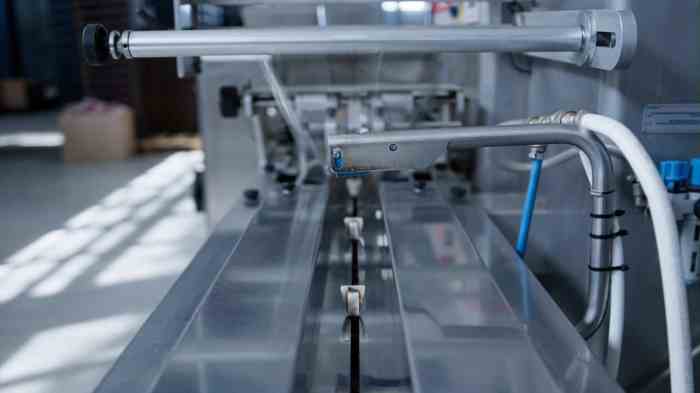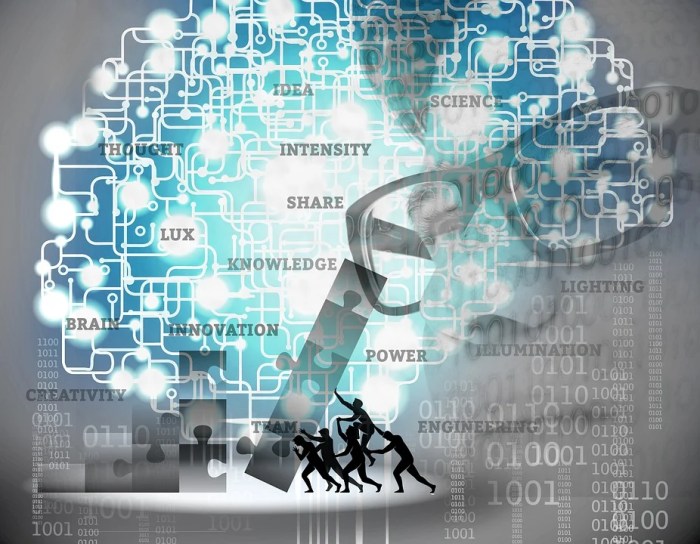How Automation Will Change Everyday Life by 2030 is more than just a catchy title; it’s a glimpse into a future where technology reshapes our daily experiences. Imagine a world where smart home devices seamlessly manage your household tasks, personal AI assistants handle your schedules, and autonomous vehicles redefine transportation. The evolution of automation technologies over the last few decades has paved the way for this transformation, enhancing productivity across key industries and making our lives more efficient.
As we delve deeper, we’ll explore the profound impact automation will have on our daily routines, workplaces, health and wellbeing, education, and even our environment. Each of these sectors will experience a radical shift, driven by advancements in technology that promise to make life not just easier but also more interconnected and smarter.
Introduction to Automation
The landscape of automation has dramatically evolved over the past few decades, shifting from simple mechanization to sophisticated artificial intelligence systems. Initially, automation was limited to repetitive tasks in manufacturing settings, where machines replaced manual labor. Today, we witness automation permeating various sectors, enhancing productivity and efficiency. Industries such as manufacturing, agricultural technology, and logistics have adopted automation practices to streamline operations, reduce costs, and improve output quality, proving its significance in the contemporary economy.
Evolution of Automation Technologies, How Automation Will Change Everyday Life by 2030
Automation technologies have progressed from basic mechanical devices to complex software solutions that leverage machine learning and AI. This evolution has enabled industries to implement automated processes that not only reduce manual effort but also enhance decision-making and operational efficiency. Key industries leading this charge include:
- Manufacturing
- Healthcare
- Retail
- Transportation
Impact on Daily Routines
By 2030, the integration of smart home devices will revolutionize household tasks, making daily routines more manageable and efficient. These devices will automate everything from lighting and temperature control to security and grocery management, allowing for seamless integration into our lives. Personal AI assistants will play a pivotal role in managing our schedules and responsibilities, becoming indispensable companions that help us navigate our day-to-day activities.
Smart Home Devices and AI Assistants
The advent of smart home technology will significantly streamline household chores, while AI assistants will elevate our daily experiences:
- Smart appliances that automate cooking and cleaning.
- AI assistants managing calendars, reminders, and shopping lists.
- Autonomous vehicles transforming transportation options.
Workplace Changes

The workplace will undergo a remarkable transformation as automation redefines job roles and responsibilities. Traditional environments will evolve into automated workplaces where machines collaborate with humans, enhancing productivity and employee satisfaction. This shift will require the workforce to adapt by acquiring new skills tailored to a technologically advanced landscape.
Redefining Job Roles
Automation will redefine various job roles, emphasizing the need for human creativity and analytical skills. Essential skills for the future workforce will include:
- Coding and programming
- Data analysis
- Collaboration and interpersonal skills
- Critical thinking and problem-solving
Health and Wellbeing
The healthcare sector will experience significant advancements in health monitoring through wearable technology. These devices will empower individuals to take charge of their health by providing real-time data. Furthermore, automation will enhance patient care in medical facilities, allowing healthcare professionals to focus on more complex tasks, thus improving overall patient outcomes.
Advancements in Healthcare
Automation’s role in healthcare will be pivotal, with innovations including:
- Wearable devices that track vital signs and health metrics.
- Automated systems in hospitals for patient monitoring and record-keeping.
- Robotic assistance in rehabilitation and elderly care.
Education Transformation

The education sector will see a shift towards personalized learning experiences driven by automation. By integrating AI tools into educational systems, educators will be able to tailor curricula to meet the diverse needs of students, enhancing learning outcomes.
Personalizing Learning Experiences
Automation will personalize education through various means, including:
- AI-driven assessments that adapt to student performance.
- Virtual classrooms that facilitate remote learning.
- Intelligent tutoring systems providing personalized guidance.
Environmental Impact
Automated systems will play a crucial role in managing resources sustainably, contributing to a more efficient and eco-friendly society. By optimizing processes, automation can significantly reduce waste and lower carbon footprints, paving the way for smarter and greener cities.
Sustainable Resource Management
The environmental benefits of automation are vast, including:
- Automated energy management systems in buildings.
- Smart waste management systems utilizing AI for recycling efficiency.
- Environmental monitoring through IoT devices in smart cities.
Ethical Considerations

With the rise of automation comes a host of ethical dilemmas that must be addressed. These challenges include job displacement, data privacy concerns, and the moral implications of relying on machines for critical tasks.
Addressing Ethical Dilemmas
The ethical implications of automation necessitate careful consideration of various factors:
- Job displacement and retraining initiatives for affected workers.
- Regulations governing the use of AI in decision-making processes.
- Ensuring data privacy and security in automated systems.
Future Trends
As we look towards 2030, several technological advancements related to automation are anticipated. The integration of AI into automated processes will enhance efficiency and open new avenues for innovation across various industries.
Predicted Technological Advancements
The expected growth and impact of automation will manifest through:
- Increased collaboration between humans and robots.
- Advancements in autonomous technology across multiple sectors.
- Enhanced integration of AI for improved decision-making processes.
Epilogue: How Automation Will Change Everyday Life By 2030
In summary, the future of automation promises to revolutionize our everyday lives by 2030, unlocking unprecedented potential across various domains. From smarter homes and workplaces to enhanced healthcare and education, the benefits of automation are vast. However, as we embrace these advancements, we must also navigate the ethical implications and prepare for the challenges that come with them. The journey into this automated future is just beginning, and it’s one we can’t afford to overlook.